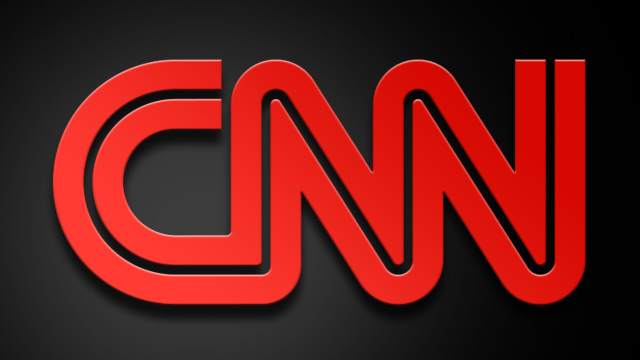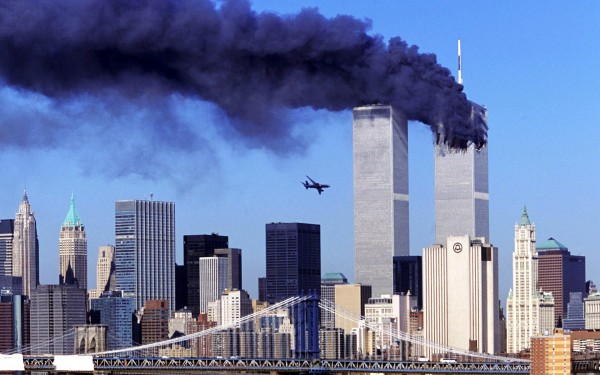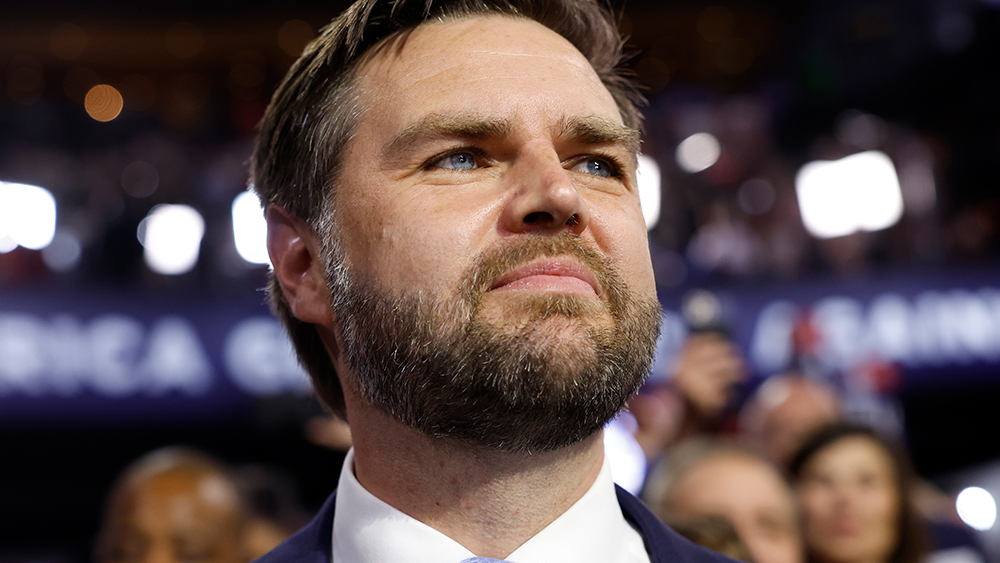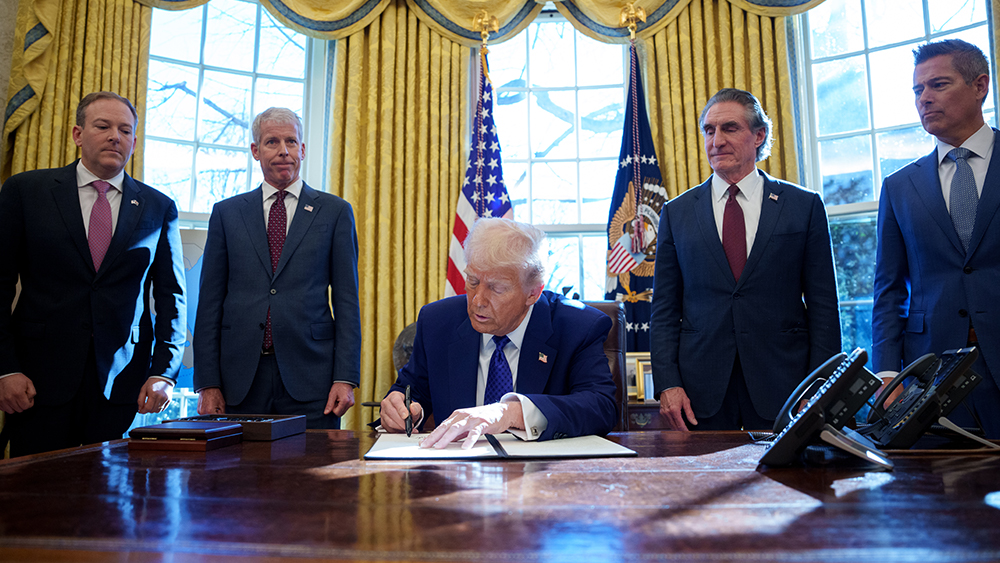CNN’s defamation battle with U.S. Navy veteran Zachary Young: A cautionary tale for media accountability
By zoeysky // 2025-02-17
Tweet
Share
Copy

- U.S. Navy veteran Zachary Young won a defamation lawsuit against CNN, stemming from a November 2021 segment that portrayed his company, Nemex Enterprises Inc., as exploitative during the U.S. withdrawal from Afghanistan.
- The segment accused Young of charging exorbitant fees for evacuation services, claims he vehemently denied.
- The CNN segment had a profound personal and professional impact on Young.
- In March 2022, CNN issued an on-air apology, acknowledging no intention to suggest Young was involved in illegal activities and expressing regret for any harm caused.
- CNN agreed to pay Young an undisclosed sum after the jury found the network liable for defamation, awarding $5 million in compensatory damages and considering punitive damages.
The 2021 incident: A tale of misleading reporting
On November 11, 2021, CNN aired a segment on "The Lead with Jake Tapper" that delved into the black market for evacuation services during the U.S. withdrawal from Afghanistan. The segment, narrated by CNN's chief national security correspondent Alex Marquardt, painted a grim picture of desperate Afghans being forced to pay exorbitant fees to escape the Taliban. Among the examples cited was Young, whose company was accused of charging $75,000 for vehicle transport to Pakistan and $14,500 per person for flights to the United Arab Emirates (UAE). The segment was accompanied by on-screen captions that reinforced the narrative of exploitation, showing Young's photograph alongside phrases like "black markets" and "exorbitant fees." According to Young, this portrayal was not only false but also deeply damaging to his reputation and business. He argues that his services were contracted by legitimate organizations, including corporations and NGOs, and were never intended for individual Afghans. The impact of CNN's reporting on Young's life and career has been profound. He claims that the segment turned him into a pariah in his industry, leading to a loss of business and significant personal distress. Young testified that the story's portrayal sent him into a spiral of depression, sleeplessness and panic attacks. The emotional and financial toll has been immense, and Young's determination to clear his name has driven him to pursue this legal battle with unwavering resolve.CNN's apology: Too little, too late
In March 2022, CNN issued an on-air apology, acknowledging that there was no intention to suggest that Young was involved in illegal activities and expressing regret for any harm caused. However, Young maintained that the apology was insufficient, arguing that it failed to reach the same audience as the original broadcast and lacked the necessary scope to repair the damage to his reputation. This inadequacy in the network's response further fueled Young's decision to seek justice through the courts. The defamation lawsuit, filed in June 2022, has seen several significant developments: Pre-trial rulings A Florida judge ruled that Young did not engage in illegal or criminal activities as suggested by CNN's 2021 segment. This ruling was a crucial victory for Young, validating his claims and setting the stage for further proceedings. Discovery disputes The discovery process was marked by disagreements over the disclosure of financial documents from CNN. The network argued that these documents were intertwined with its parent company, Warner Bros. Discovery, complicating the disclosure process. Expert testimony The court also barred CNN's expert witness from testifying that Young didn't experience financial losses due to the segment. The judge ruled that such testimony would be "speculative and outside the expert's qualifications."The trial: A reckoning for CNN
The trial, which has been closely watched by legal experts and the media, has not been kind to CNN. Key moments that have undermined the network's case include: Internal communications Messages from CNN staff, including Marquardt, revealed a hostile and predetermined attitude toward Young. Phrases like "We gonna nail this Zachary Young mf—ker" and descriptions of Young as having a "punchable face" were particularly damaging. Producer testimony Top producers testified that they opposed the modest on-air apology, further eroding CNN's claim of good faith. The lack of regret and opposition to correcting the record has likely influenced the jury's perception of the network's intentions. Axelrod's misstep CNN's lead attorney, David Axelrod, faced a humiliating moment when he was called out by the judge for misrepresenting a document and repeatedly calling Young a liar. The judge, William Henry, sternly warned Axelrod that his credibility was "about none," a significant blow to CNN's case. (Related: ABC News and George Stephanopoulos pay Trump $15M to settle defamation suit.) CNN agreed to pay Young an undisclosed sum after a Florida jury found the network liable for defamation. The settlement came hours after the jury awarded Young $5 million in compensatory damages and was deliberating on punitive damages, which could have reached tens of millions of dollars. While CNN expressed pride in its journalists, it also acknowledged the need to take "useful lessons" from the case. For media organizations, this case underscores the need for rigorous fact-checking and a commitment to correcting errors with the same urgency and reach as the original reporting. The rapid spread of information through social media and online platforms can exacerbate the harm caused by defamatory content, making retractions and apologies often insufficient to repair reputational damage. While the legal battle between Young and CNN will have broader implications for media accountability, it is also a deeply personal fight for Young. The case has exposed the human cost of defamatory reporting, highlighting the emotional and financial toll on individuals who are falsely accused of wrongdoing. Visit Journalism.news to read similar stories. Watch the video below as Elon Musk announces his plans to file a defamation lawsuit against The Anti-Defamation League. This video is from the Puretrauma357 channel on Brighteon.com.More related stories:
Trump is taking on the media, exposing defamation and WINNING BIG. Elon Musk accuses Anti-Defamation League of spreading “anti-white racism.” Palin wins appeal on defamation case against New York Times. Sources include: JonathanTurley.org HHJTrialAttorneys.com WSJ.com Brighteon.comTweet
Share
Copy
Tagged Under:
mainstream media propaganda Afghanistan fake news defamation deception lies journalism progress disinfo news cartels Jake Tapper smeared Zachary Young public apology The Lead with Jake Tapper Nemex Enterprises Inc.
You Might Also Like
Trump administration secures historic U.S.-Mexico military border patrol agreement
By Cassie B. // Share
A BEACON OF PEACE: Trump administration signals sanctions relief for Russia in Ukraine talks
By Willow Tohi // Share
“Above Top Secret” unveils the digital age’s darkest secrets and lies
By Kevin Hughes // Share
JD Vance has signed the death warrant of the status quo
By News Editors // Share
Recent News
Trump administration secures historic U.S.-Mexico military border patrol agreement
By isabelle // Share








